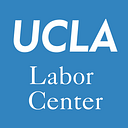Students and COVID-19: We Are Struggling, Here’s the Help We Need
By Lesly Ayala
College students are facing immense stress and multiple struggles during this pandemic. Many students have lost their jobs or their homes. Others are essential workers facing the risk of COVID-19 infection. Most are struggling with online classes. The burden of financial insecurity has added more stress on top of juggling to finish essays, meet deadlines, and the fear of getting sick. I know this because I am a senior at UCLA experiencing this stress. The federal government and universities are not doing enough to support us.
When the government announced that it would be giving out stimulus checks to households, college students who are claimed as dependents were excluded. Despite our dependent status on tax returns, a lot of students, including me, are financial providers in our households. I help pay for groceries and bills for my household every month. COVID-19 has made it more difficult for students to help provide for our families. A recent survey on workers and learners in Los Angeles County by the UCLA Labor Center found that “52% have been laid off, terminated, or furloughed from their jobs due to the pandemic.”
Many students are being forced to look into gig work or the informal economy to supplement their lost wages. Instacart has hired more than 500,000 new shoppers since the pandemic started; many of them are college students. Those who are suffering the most are undocumented college students and their families who are not eligible for stimulus checks. Although the CARES Act provided colleges with funding, universities determine how much they want to help students and which students they want to help. Again, many undocumented students are left out.
In addition to financial burdens, students are struggling with the transition to online learning, especially in a hectic environment. When I was on campus at UCLA, I could go to the library and do my work in peace. At home, my 5-year-old niece is running around, I have to take care of her at times, and my parents are talking in the background. At times when I am in Zoom classes, my internet connection drops, and I am left struggling to reconnect. This is the reality of many students. There are many college students who do not have access to computers, stable internet, or a peaceful environment to do homework and attend classes. The UCLA Labor Center survey found that 51% of students accessed classes and coursework through their smartphones, and 26% had to share their device with other household members. The situation is made worse by professors who are not understanding of students’ situation. I have been lucky to have understanding professors, but many students are faced with professors who are unwilling to accommodate their needs.
It is very hard to study when there are many insecurities in your life. Food insecurity is a big problem for college students. Food banks have seen an almost 50% increase since stay-at-home orders were implemented, in part because of the fear of going to grocery stores. This is a fear for my family, especially after a close family friend, who only went out to go to the grocery store, was diagnosed with COVID-19. Our neighbor has been kind enough to go to a local food bank and share what she receives with us. This fear is magnified for college students working as essential workers, putting their lives and the lives of their families at risk. Grocery stores and companies like Amazon are not doing enough for their workers, many of whom are college students. Employers are not mandating social distancing rules or providing essentials such as personal protective equipment (PPE).
There have been talks in Congress about another round of stimulus checks for families. It is important that college students are considered in this debate for financial support, especially undocumented students. Colleges also have the responsibility to provide for their students who pay thousands of dollars a year in tuition and fees and are struggling. The UCLA Labor Center survey recommends colleges address the inequities exposed by remote learning, freeze tuition and fees as students grapple with job loss, and provide holistic support for students such as mental health services and food banks. As we start the new academic year, I urge college administrators, professors, and educators to become more aware of students’ financial, health, and housing insecurities and to be more understanding in these unprecedented times.
Lesly Ayala is currently a senior at UCLA double majoring in Chicanx and Central American studies and labor studies.
